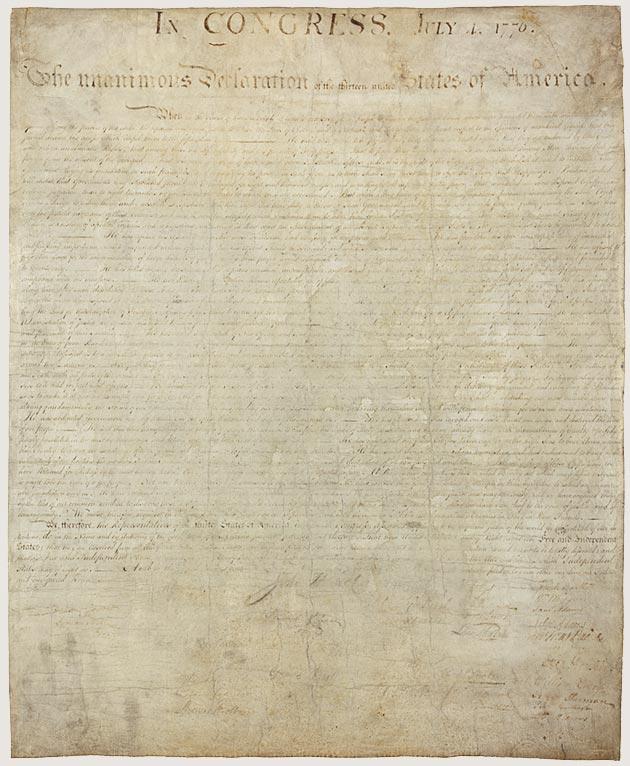Introduction
The National Archives provides access to various important papers. However, the set of America’s founding documents deserves special attention. The first document in the set is the Declaration of Independence. It had a significant impact on the history of the United States. The main goals of this paper are to analyze the Declaration of Independence and describe its impact on current cultural issues.
Discussion

The Declaration of Independence is a document that describes norms by which the government and people of the United States abide. Although the document is not legally valid, it is of significant importance. It serves as a measure against tyranny and oppression. The Declaration of Independence is a source of inspiration for people who support democracy. The main purpose of the document is to explain reasons to gain independence from Great Britain in 1776 (“Declaration of Independence,” n.d.). The declaration demonstrates the necessity to start developing as a separate nation. The key principle that it states is that all people are created equal, and they have inherent rights that should not be violated by anybody. These rights are the right to life, liberty, and pursuit of happiness. If a government cannot ensure these rights, it is people’s responsibility to rebel and establishes a new government.
The document was approved by the Continental Congress on the fourth of July in 1776. It declared independence from Great Britain. Prior to the event, the Congress voted for the right of Americans to become a separate nation. The document has a complex historical background. The armed conflict between Great Britain and its several North American colonies occurred in the spring of 1775 (“Declaration of Independence,” n.d.). The Americans fought for their rights within the British Empire. Another important event that had led to the gaining of independence was the American Revolution. In 1776, the delegates from North Carolina voted for independence in the Congress. Subsequently, similar moves were made by representatives from Virginia, Massachusetts, and other states.
To develop the analysis of the document, it is necessary to pay particular attention not only to its context but also to logical arguments that emphasize its philosophical nature. At the beginning of the declaration, the author, Thomas Jefferson, explained his position against their king (“The Declaration of Independence: A History,” n.d.). Although the actions to which the document encouraged people were radical, the spirit of their culture helped to present the revolutionaries as rational and civilized. Jefferson applied a deductive method to provide the reasoning for such actions. His philosophical views served as the major points on which the document is based. Jefferson argued that inherent people’s rights are guaranteed by their Creator, and thus the government should not violate them under any circumstances. He blamed their king for unjust treatment and cruel actions. The document presents a sincere and emotional appeal for justice. In order to make the declaration more convincing, Jefferson used such rhetorical tools as complex syntax and diction.
The Declaration of Independence still has a significant impact on contemporary cultural patterns. For example, the Supreme Court constantly refers to the document, demonstrating that the revolutionary philosophy still influences judicial decisions. Another example is different acts and laws established by the federal government to protect human rights and ensure equal treatment towards minorities of any kind. These issues are still relevant and constantly discussed by various officials who resolve them, taking into consideration the principles described in the Declaration of Independence.
Conclusion
In conclusion, the Declaration of Independence is one of the major documents that determine the course of the history of the United States. Its influence is still very strong. The principles discussed in the declaration are general and unchangeable. They emphasize the importance of the inherent rights of all people. That is why many current governmental decisions are based on the philosophy promoted by the Declaration of Independence.
References
Declaration of Independence. (n.d.). Web.
The Declaration of Independence: A history. (n.d.). Web.